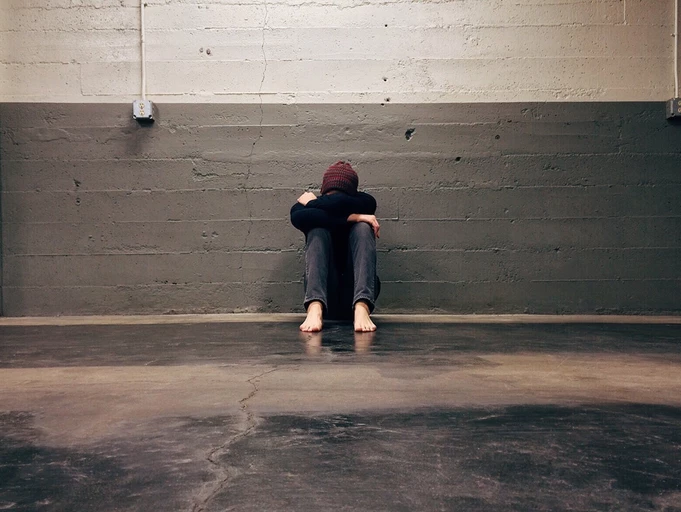
- What is suicide prevention?
- Why have I lost interest in things once enjoyed?
- Why do I have feelings of sadness or being continually down?
- When will I get out of this deep dark hole?
Suicide prevention is required.
There has never been a more important time in the history of the human race to ask the question “Are You OK?”
The World Health Organization (WHO) estimate that by 2030 Mental Illness will be affecting more people in the world than any other illness, overrunning cardiovascular disease, diabetes and cancer. by the way, That is only 5 years away.
We live in a fast-paced time. Work, relationships, finances and life are putting more and more pressure on us. For many it becomes a fact of survival as we struggle to keep our heads above water.
There are a whole range of mental illnesses which require some form of assistance in the treatment of them. The list is long and complicated, but in this article I will focus on depression and suicide.
What is Depression?
According to the Diagnostic & Statistics Manual of Mental Health (DSM) there are nine core symptoms that people suffering from Depression may display:
- Loss of interest or pleasure in things once enjoyed.
- Feelings of sadness or being continually down.
- Change in appetite. Eating less or even more than normal.
- Trouble sleeping or getting too much sleep.
- Lack of energy. Feeling worn out all the time.
- Feeling restless. Unable to relax and sit still.
- Lack of concentration and difficulty making decisions.
- Feeling worthless or having no purpose.
- Thoughts of or attempting suicide.
Mental Health Assessment
If you know of someone demonstrating any of these symptoms for more than 2 weeks then I suggest you get them to a GP as soon as possible. A Mental Health Assessment could be required. If there are thoughts of suicide then do not leave the person alone and get them to medical care immediately. Medication might be prescribed depending on the severity of the depression. This can kick start the recovery, supplementing those feel good chemicals Serotonin, Dopamine, and Norepinephrine.
Treatment of depression
Other techniques taught by a health care workers, psychologist, psychiatrist and counsellors maybe:
- Journaling – Write down all positive and negative thoughts for a week. Tally them up at the end of the week. Then try to have a couple more positive thoughts the week thereafter.
- Thought Stopping – Say to yourself or out loud STOP when a negative thought comes into the mind. Then replacing it with a positive thought.
- Schedule an enjoyable activity – Write it down, and then write “I will enjoy this activity because………….”
- Move the Body – Do some exercise and stretching. This will build a fitter stronger body but also release those feel good chemicals into the blood stream.
- Meditate – Practice mindfulness meditation to calm and focus the mind. It also builds Self-Awareness. Find a good meditation teacher and practice daily.
More Treatment Options
- Suppressed Anger – You may be angry with someone but have suppressed it instead of releasing it. Ask yourself if you angry with someone?
- Cold Therapy – Lowering the core body temperature by at least 1c releases Norepinephrine and Dopamine, feel good transmitters and chemicals into the blood stream. This gives you a lift in thought and attitude. This technique should be ONLY done once trained by an experienced qualified instructor. Do not attempt this on your own.
- Support – Have people in your life to support you in your time of need. Family, friends, work colleagues, counsellors or even support groups can help with this.
- Affirmations – Constructing and reciting affirmations daily will take what is verbally said from the conscious to the subconscious mind.
- Find a purpose for living, a meaning for being here, some significant long range goal to work towards.
Depression can sneak up on any of us. Many times, the depressed person just can’t change their thinking so there is no point telling them to do just that. Instead lend an empathetic ear. Tell them that you care about them and ask if everything is alright. Read about Understanding Depression & the Road to Recovery
You may also benefit from reading: Stress Management , The Power of Meditation , Anger Management , Breath and Ice Therapy & How to Use Positive Affirmations
Nobody makes it through life alone. We all need help.
What is Suicide?
When someone suffering from depression continues to suffer without seeking help, they can slip deeper and deeper into a hole. They may no longer think rationally and logically and are unable to stop the pain they feel. Often times a person will consider taking their own life as a way out of the pain and suffering.
A person attempts suicide every 10 minutes in Australia. Suicide is the leading cause of death in people aged between 15 and 34.
The DSM has given some clear indicators of a person considering suicide:
Verbal.
Sentences like:
- “I don’t enjoy life anymore”
- “I’m fed up with living”
- “Is this life really worth all this hassle”
- “I’m just a burden to others”
- “I feel worthless”
- “They will be sorry when I’m gone”
Non-Verbal.
- Withdrawal from family and friends or colleagues.
- Unwashed and ungroomed in appearance
- Stories of reckless behaviour.
- Rapid weight change (hints of not eating)
- Substance abuse.
- Demonstrating severe negative behaviours.
- Unable to function properly.
- Unexplained improvement in emotions. (this may mean that a plan for suicide has been formulated)
What can I do?
This is serious stuff.
- Ask the person straight out “Are you thinking about taking your own life?
- This must be addressed so that the situation can be risk assessed. Many folks are frightened to ask this question. They think that if they ask the question then they might put the thought of suicide into their friend’s mind. This is not true. If they are displaying suicidal tendencies then the thoughts are already there.
- Find out if there is immediate danger to the person. If so refer them to nearest hospital immediately. Possibly even escort the person there or call the police to escort them. All emergency departments have qualified Mental Health Staff to handle this type of thing.
- What is most important is to listen to the suicidal person in a non-judgmental way. Show them that you care and get help. Someone in this frame of mind requires professional help. Do not delay.
You may also benefit from reading: Better Communication
Other mental health articles of interest: Generalised Anxiety Disorder (GAD) , Acute & Post Traumatic Stress Disorder , Panic Attack , Obsessive Compulsive Disorder , Understanding Depression & the Road to Recovery, What Is Narcissistic Personality Disorder? , & Panic Disorder & Agoraphobia
There is a road to recovery. It may start with hospitalisation, medication, counselling and a combination of the above treatments listed in the depression section of this article.
But it starts with you. Stay on the lookout for the people in your life. Your family, your friends and your work colleagues, as they may need your help.
Take action now
You can also give me a call for a free 15 minute chat to see if my service is right for you 0405 391 110 or fill out the contact form: https://apspear.com.au/contact/
Check out my social pages:
https://www.facebook.com/MMEI01 or https://www.linkedin.com/in/adrian-p-spear/

